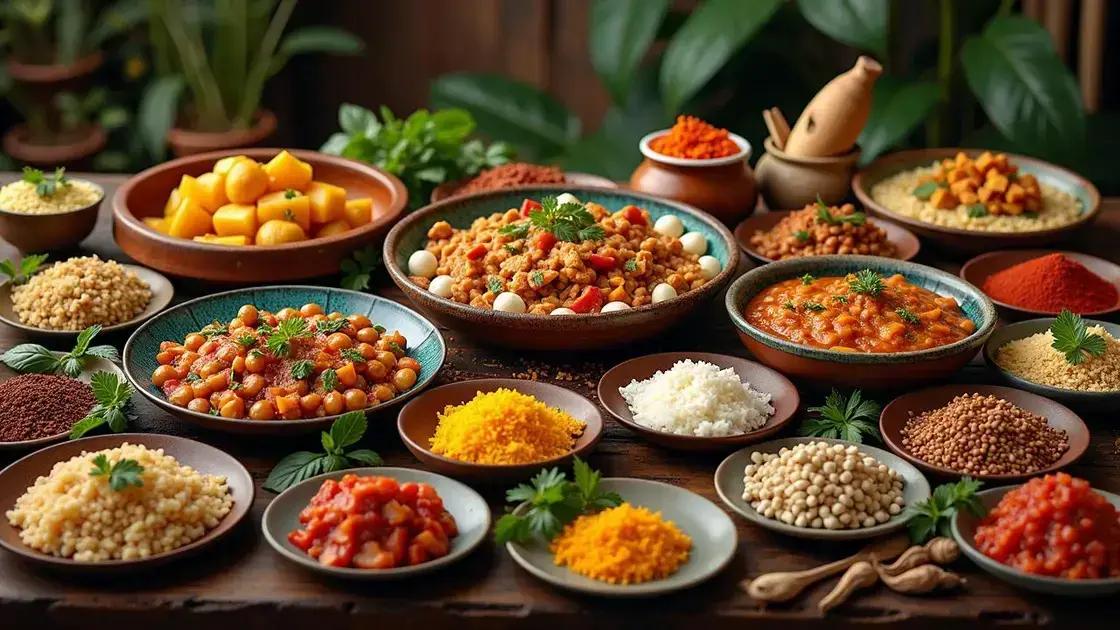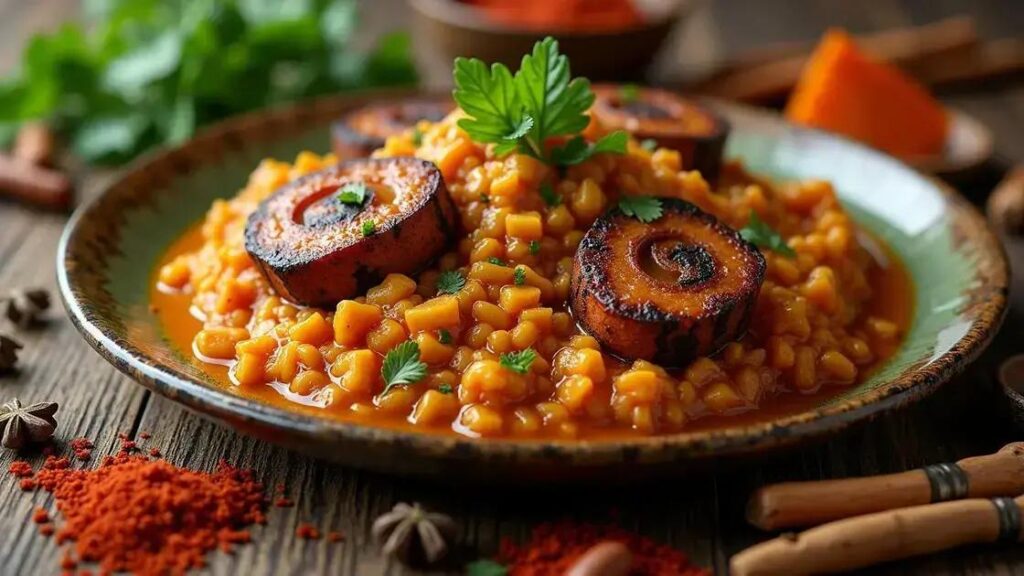African recipes reflect the continent’s diverse culinary heritage, showcasing a variety of ingredients, flavors, and cooking styles. Myths debunked highlight that African cuisine is not solely focused on meat or spice, but includes vibrant vegetarian options and accessible cooking techniques. Understanding these elements enriches appreciation for the rich cultural traditions behind each dish.
African recipes often spark curiosity and debate. Are they steeped in tradition, myth, or reality? This article delves into the rich origins of African cuisine, helping to separate the facts from the fiction. From savory stews to flavorful spices, you’ll discover the culinary wonders that define the African continent. Join us as we explore the authenticity behind some well-known African recipes, aiming to empower your cooking skills and broaden your culinary horizons.
Exploring the Origins of African Cuisine

African cuisine has a rich tapestry woven through history, culture, and geography. Each region boasts unique flavors and ingredients, shaped by the land and the people. The origins of African cuisine can be traced back to ancient agricultural practices. People cultivated crops like millet, sorghum, and yams, which remain staples today.
Regional Influences
Across Africa, regional climates influence the ingredients used in cooking. For instance:
- North Africa: Known for its spices, tagines, and the use of couscous, largely influenced by Arab and Berber cultures.
- West Africa: Features ingredients like groundnuts, cassava, and plantains, creating hearty dishes like jollof rice and egusi soup.
- East Africa: Renowned for its use of spices and seafood, with cuisine reflecting Indian, Arabian, and Somali influences.
- Southern Africa: Known for braai, a style of cooking meat over open flames, featuring maize-based dishes like pap.
Historical Context
The history of African cuisine reflects the continent’s trade routes and colonial encounters. For instance, spices from the Middle East and Asia were introduced through trade and colonization, enhancing local flavors. Moreover, ingredients such as tomatoes and chili peppers arrived from the Americas, revolutionizing traditional recipes.
Moreover, food often plays a significant role in cultural identity and communal bonds. Meals are not just about sustenance; they are occasions for bringing people together and celebrating traditions, showcasing the interplay between food, culture, and community.
Debunking Myths About African Recipes

Many myths surround African recipes, often leading to misunderstandings about the continent’s diverse culinary landscape. One prevalent myth is that African food is all about meat and starchy sides. While proteins are essential, many regions focus on vegetables, grains, and legumes, highlighting the variety of healthy options available.
Myth: African Cuisine is Monotonous
Another common belief is that African recipes lack flavor and creativity. This could not be further from the truth! Cultures across Africa use a rich array of spices, herbs, and cooking techniques. For example: Moroccan tagines showcase aromatic spices like saffron and cumin, while West African jollof rice is celebrated for its boldness and complexity.
Myth: All African Dishes are Spicy
Many people think that all African dishes are incredibly spicy. While heat from chili peppers is common in some regions, many recipes focus on balance and subtlety. Not every dish packs a fiery punch; some are mild yet rich in flavor, appealing to various palates.
Lastly, some assume that African recipes are hard to make. Contrary to this belief, many dishes are straightforward and use easily accessible ingredients. There are plenty of quick and easy African recipes that anyone can enhance in their kitchen. By understanding and exploring these myths, we can appreciate the true diversity of African culinary traditions.
Understanding African Recipes: A Journey Through Culture
African recipes are vibrant expressions of history, tradition, and the culinary arts. By exploring the origins and debunking myths, we gain a deeper appreciation of the continent’s diverse cuisines.
From the rich spices of North Africa to the hearty dishes of West Africa, each region offers unique flavors that tell the story of its people. The diversity found in African cooking invites us to celebrate dishes that are both familiar and exotic.
As we continue to explore African recipes, let us embrace the complexity and culinary wisdom they offer. By doing so, we not only enrich our cooking but also honor the cultures that shape these beloved dishes.
FAQ – Frequently Asked Questions about African Recipes
What are some common ingredients in African recipes?
African recipes often feature staples like grains, vegetables, legumes, and a variety of spices, which vary by region.
Are African recipes difficult to make?
Many African recipes are straightforward and can be made with easily accessible ingredients, perfect for cooks of all skill levels.
Do all African dishes contain meat?
No, many African cuisines emphasize vegetables and legumes, showcasing a variety of healthy and flavorful vegetarian options.
Is African cuisine spicy?
Not all African dishes are spicy. While some regions use chili peppers, others focus on balance and flavor without excessive heat.
What is the significance of food in African culture?
Food plays a vital role in African culture, serving as a means of connection, celebration, and storytelling within communities.
How can I learn more about African cooking?
You can explore African cooking through cookbooks, online resources, and cooking classes that focus on different regional cuisines.













